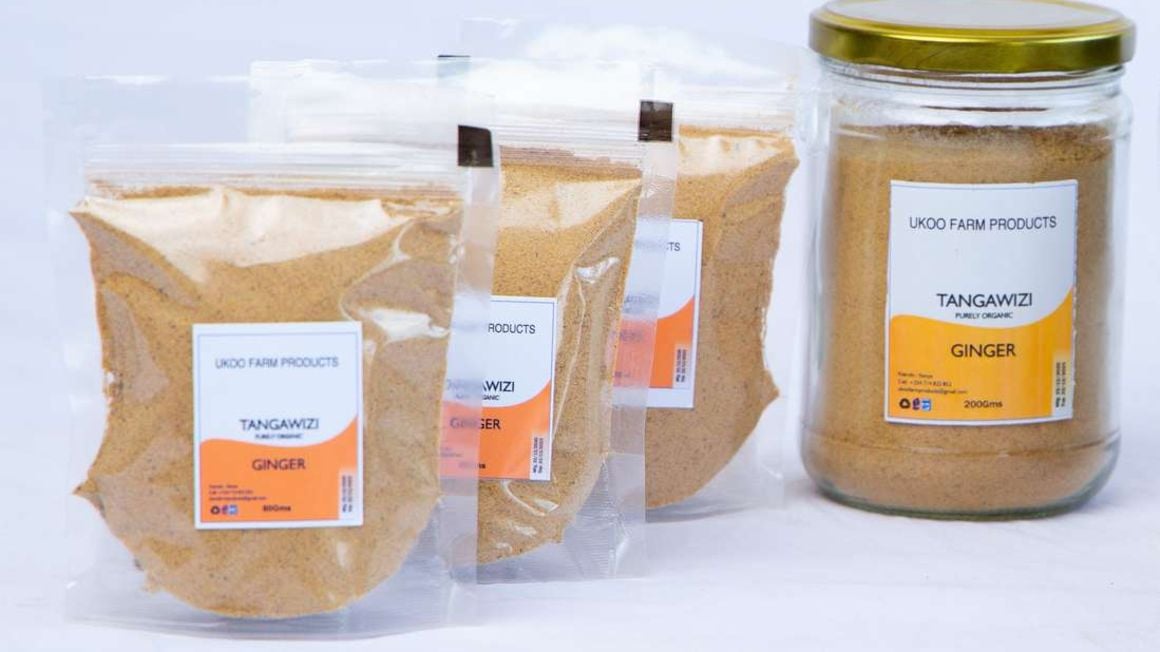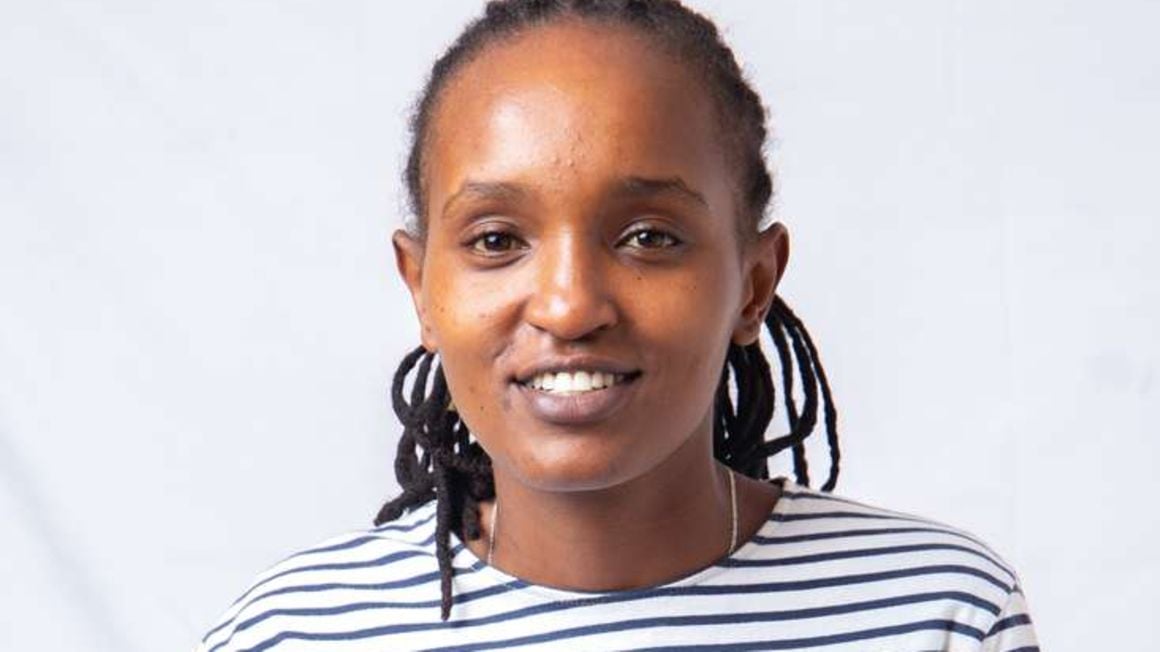
Stephanie Njeri's products. PHOTO | COURTESY
She is a graduate of a bachelor’s degree in sociology and psychology from Kenyatta University. However, Stephanie Njeri has ventured into an entirely different field from what she studied.
She is the founder of Ukoo Farm Products (UFP) that deals with value addition of agricultural products.
Initially, she wanted to be a farmer but her focus shifted when she realised a huge gap in value addition.
“I started this venture hoping to get into pre-production, which is farming. Once I got into business, the focus then shifted when I realised that there’s a surplus food or rather, agricultural products in rural areas and the problem wasn’t in the pre-production process, but in the marketing structures, infrastructure and the value addition chain, just to mention a few,” says Ms Njeri, 24.
“I then chose to go with value addition because small scale rural farmers did not have sufficient information on how to go about it.So UFP basically occupied this gap,” narrates Ms Njeri.
Armed with a capital of about Sh50,000, she ventured into the agribusiness last year.
“When I was doing research for this project, I organised small scale farmers who were mainly rural women to provide raw materials. So I believe it’s correct to say I have partnered with them to make UFP a success,” reveals the entrepreneur.
She deals with herbs and spices at the moment, but she says their coconut oil will grace the market by the end of this month.
“We have an oil making machine that should begin coconut oil production by the end of the month,” she says.
The entrepreneur sources raw materials from small scale farmers in Nakuru, Nyeri, Meru and Mombasa, who specialise in farming spices. They also deal with seed wholesalers when a product is difficult to obtain.
Ms Njeri says that they have a 10 percent markup to the market price, when dealing with small scale farmers to avoid exploitation.
They buy a 50kg bag of ginger at between Sh6,000 and Sh6,500, depending on the season. They buy soybean at Sh700-Sh900, black pepper Sh8,000-Sh8,500, cardamom at Sh6,700, cloves Sh6,200, cinnamon Sh5,800 and cumin at Sh6,400.
“Currently, we have planted coriander that should be used in the production of coriander powder. With time, we might consider expansion into more crops, but currently our focus mainly lies in value addition on crops grown by small scale farmers,” notes Ms Njeri, who has outlets in Nairobi’s Ruai and Hurlingam areas.
“For the herbs and spices sector, we outsource the grinding to a third party but we do the packaging,” she says adding that their products are purely organic.
“The farmers rely on natural pesticides or fertilisers during the pre-production process. We have written agreements on the quality of products we will be acquiring from the small scale farmers. We also had some of the raw materials tested before we began working with our suppliers - those who aren’t small scale farmers,” adds Ms Njeri.
She reveals that there are no additives or preservatives used in their products.
“We source the best grade of a particular product to use. Hygiene and sanitation standards are strictly adhered to,” she says.
They sell 80g soya at Sh120, and 200g soya at Sh300, 80g ginger (tangawizi) at Sh150, and 200g tangawizi at Sh350. A 80g black pepper goes for Sh180 while 200g costs Sh400. Apart from that, they sell 80g of pilau masala at Sh180 and 200g at Sh370.
She currently has three part-time employees — a driver, social media intern and project director. They use social media sites such as Twitter and Instagram to market the products.
“We also use ecommerce sites such as Jiji, Mkulima Young, Pigiame and Jumia. Our products should be on the Jumia catalogue by end of next week,” reveals Ms Njeri.
“Currently our sales have been within Nairobi. However, if a customer is able to afford the transport charges, we are open to supplying countrywide.”
Among the challenges that they have experienced include lack of funds to expand the business.
“This is a challenge that cuts across. We have approached a few investors and we are positive we will soon address,” she says, adding that competition from established entities is another hurdle.
“The current state of the national economy doesn’t make it any easier for start-up either,” Ms Njeri notes.
There is also discrimination based on age. This is especially from professionals in the business.Some think I’m too young to run a business and wouldn’t give me the time to engage them in any aspect.”
She urges those who would like to venture into such a business to ensure their products are of good quality, so that they retain and grow their customer base.
“Plan ahead, there are so many logistics that need to be settled before and during the whole process. I’ve learnt that the hard way. Be bold and positive, there will be challenges but nothing comes easy, hold fast and it will pay out in the long run,” advises Ms Njeri.
She eyes export market in future. “Kenya has so much potential for value addition, considering we are majorly an agricultural state,” she says.
“We will start producing coconut oil by the end of January 2021 and diversify into other natural and organic oils such as avocado oil. Expansion of the UFP herbs and spices line to accommodate different products and finally, venture into export.”





No comments :
Post a Comment